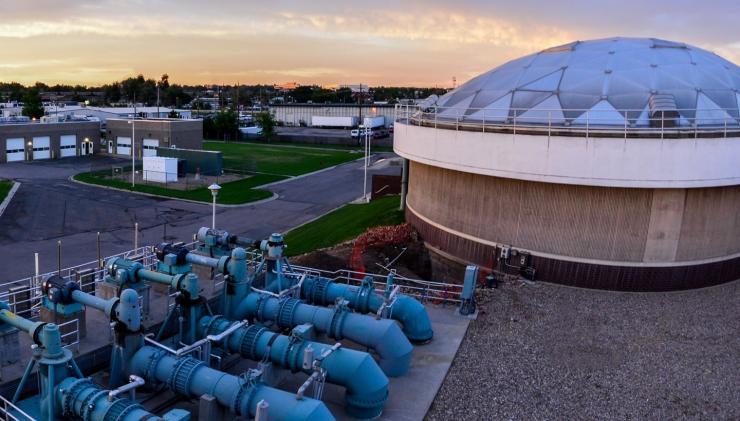Turning Waste into Gold: University of Virginia's Innovative Project to Convert Wastewater to Renewable Natural Gas
Key Ideas
- University of Virginia is conducting a $2.3 million Department of Energy effort to explore converting organic waste in wastewater treatment plants into 100% renewable natural gas using green energy.
- The project aims to use hydrogen to convert carbon dioxide and methane in biogas into renewable natural gas, which can be directly blended into existing pipelines, reducing the need for venting and carbon separation.
- The research involves developing highly effective catalysts based on nickel nanoparticles, conducting life cycle assessments, techno-economic analyses, and assessing the potential for global warming mitigation and economic feasibility.
- The project, in collaboration with the National Renewable Energy Laboratory and a wastewater treatment facility, South Platte Renew, aligns with UVA's Grand Challenges initiative to address real-world problems through innovative research.
The University of Virginia is engaged in a groundbreaking project to transform wastewater into renewable natural gas through an innovative approach that could potentially revolutionize the treatment of organic waste. Led by chemical engineering professor Robert J. Davis and his colleagues, the project focuses on utilizing green energy, particularly hydrogen, to convert carbon dioxide and methane from biogas into a sustainable energy source. By avoiding the venting of carbon dioxide and directly blending the resulting renewable natural gas into existing pipelines, the project aims to enhance environmental sustainability.
Collaborating with experts from the UVA Chemistry and Civil and Environmental Engineering Departments, the research team is exploring the use of new catalysts, including nickel nanoparticles, to optimize the conversion process. Through rigorous assessments, including life cycle evaluations and techno-economic analyses, the team aims to demonstrate the feasibility and benefits of this innovative approach for both wastewater treatment facilities and the environment.
The project, which involves partnership with the National Renewable Energy Laboratory and a Colorado wastewater treatment facility, is not only focused on technological advancements but also on addressing broader challenges such as global warming mitigation and economic viability. By aligning with UVA's Grand Challenges initiative, the research underscores the university's commitment to impactful research that addresses real-world issues and promotes sustainability.
With a vision to turn waste into a valuable resource, the University of Virginia's project represents a significant step towards a more sustainable and environmentally friendly future, offering promising solutions for converting carbon dioxide emissions into renewable natural gas.
Topics
Green Hydrogen
Renewable Energy
Sustainability
Green Technology
Carbon Reduction
Catalysts
Wastewater Treatment
Academic Collaboration
Research Project
Latest News
